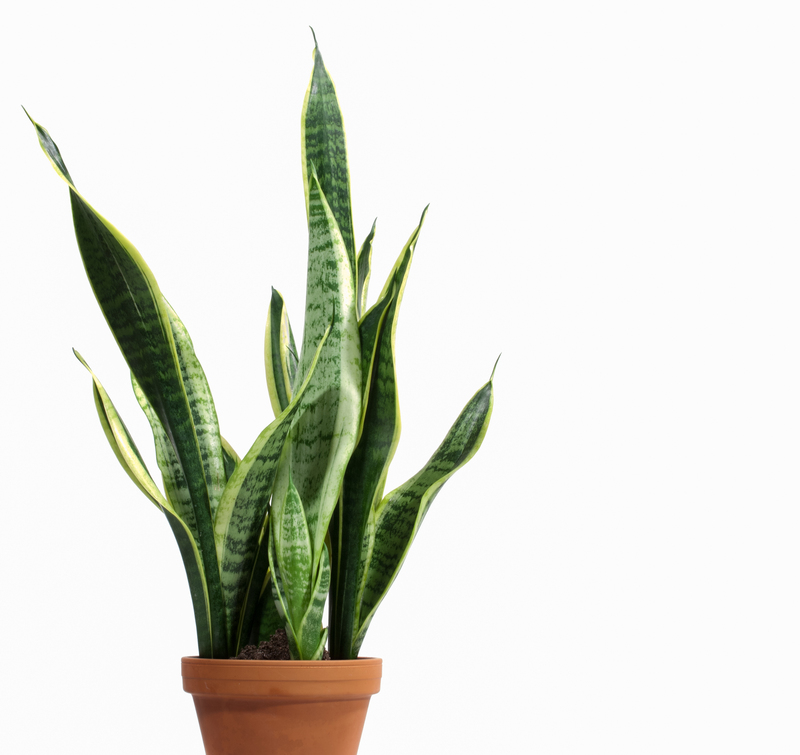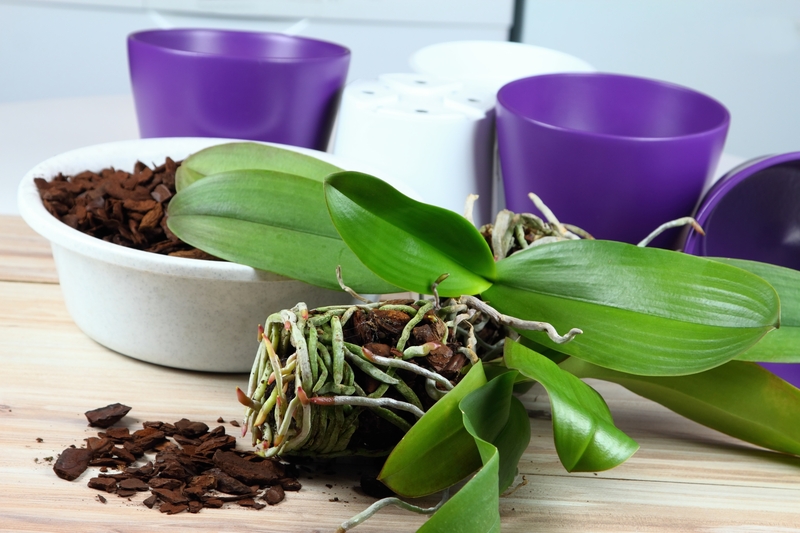Breathing Life into Soil with Recycled Waste
Posted on 08/09/2025
Breathing Life into Soil with Recycled Waste
Soil is the foundation of all terrestrial ecosystems, supporting plant growth, purifying water, and hosting billions of microorganisms that are essential for nutrient cycling. However, intensive agriculture, urbanization, and pollution have left soils worldwide depleted and degraded. As concerns about sustainable agriculture and waste management intensify, a promising solution has gained momentum: breathing new life into soil with recycled waste. This article explores how various forms of recycled waste--from kitchen scraps to industrial byproducts--can rejuvenate soils and foster a more sustainable planet.
Why Healthy Soil Matters
Healthy soil isn't just dirt beneath our feet--it's a dynamic, living system crucial for food security, climate regulation, and biodiversity. Healthy soil delivers an array of benefits, including:
- Improved plant productivity due to balanced nutrients and better moisture retention
- Enhanced carbon sequestration, helping mitigate climate change
- Water filtration, reducing runoff and supporting groundwater supplies
- Habitat for vast microbial and faunal diversity
Yet, continuous crop production, erosion, and chemical overuse have stripped much of our soil of its vitality. How can recycled waste be the key to soil revival?

Understanding the Power of Recycled Waste in Soil Restoration
Recycled waste encompasses a broad range of materials--organic kitchen scraps, yard trimmings, manure, paper, and certain industrial by-products. When processed correctly, these "wastes" transform into invaluable resources for soil revival. Sustainable soil enrichment with recycled waste reduces landfill burden, lowers greenhouse gas emissions, and returns essential nutrients to the earth.
The Science of Soil and Organic Matter
Soil fertility and structure depend largely on the amount and quality of organic matter present. Organic matter improves soil's physical, chemical, and biological properties. It serves as the primary food source for soil organisms--from bacteria and fungi to earthworms--who, in turn, break down organic materials, releasing nutrients accessible to plants.
Recycled organic waste directly contributes to:
- Increased soil organic carbon (SOC)
- Enhanced nutrient profiles (NPK and micronutrients)
- Improved soil structure and porosity
- Greater water holding capacity
- Suppression of soil-borne diseases
Types of Recycled Waste for Soil Enhancement
Not all recycled waste is equal. Let's explore some popular forms of waste that can breathe life into depleted soils.
1. Compost: The Gold Standard
Compost is created by decomposing organic matter--like food scraps, coffee grounds, grass clippings, and leaves--under aerobic (oxygen-rich) conditions. The result is a dark, crumbly amendment rich in nutrients and beneficial microbes, often described as "black gold" by gardeners.
- Benefits: Adds essential nutrients, enhances microbial diversity, improves soil structure, and suppresses diseases.
- How to Use: Mix into garden beds or spread over lawns as top dressing.
2. Vermicompost: Boosting Soils with Worm Castings
Vermicompost is compost processed by earthworms. Worm castings are teeming with plant growth hormones and microorganisms, accelerating soil revival and enriching fertility.
- Vermicomposting utilizes food scraps, shredded newspaper, and leaves, making it ideal for both household and urban applications.
- Benefits: Rapid nutrient availability and improvement in soil's biological activity.
3. Biochar: Charcoal for Soil Health
Biochar is a type of charcoal produced by heating organic waste (wood chips, crop residues) in low-oxygen environments. It is highly porous, improving soil aeration and retaining nutrients and water.
- Eco-friendly: Locks carbon in the soil for hundreds of years, combating climate change.
- Uses: Mix with compost or apply directly to soil.
4. Green Manure and Cover Crops
Green manure refers to plants grown specifically to be incorporated back into the soil. Cover crops like clover, vetch, and mustard recycle nutrients and add organic matter. These crops prevent erosion and foster soil structure.
5. Municipal and Industrial Organic Waste
Treated sewage sludge (biosolids), paper mill residue, and brewery waste are examples of industrial byproducts successfully used in agriculture after undergoing strict processing and safety protocols.
- Precautions: Only use certified products to avoid contamination with heavy metals or pathogens.
How Recycled Waste Breathes Life into Soil
The biological, chemical, and physical transformation that recycled waste imparts to soil is astonishing. Here is how the lifecycle works:
Decomposition and Humus Formation
- Organic matter decomposes thanks to the action of bacteria, fungi, and macrofauna like worms and beetles.
- This process forms humus--a stable, dark organic material that binds soil particles and stores nutrients.
- Soil structure improves, reducing compaction and increasing water infiltration.
Nutrient Cycling
- As waste breaks down, essential nutrients such as nitrogen, phosphorus, potassium, calcium, and micronutrients are slowly released, feeding plants over time.
- Bacteria and fungi convert nutrients into forms that roots can easily absorb--encouraging robust growth and resilience to stress.
Microbial Growth and Biodiversity
- Recycled waste fuels the growth of beneficial soil microbes that outcompete harmful pathogens.
- Greater microbial diversity leads to natural disease suppression and faster breakdown of pollutants.
In essence, recycled organic waste invigorates the entire soil ecosystem from the ground up.
Environmental and Economic Benefits of Recycling Waste into Soil
Utilizing recycled waste for soil improvement isn't just a boon for crop productivity--it's a win for the environment and economy.
Reducing Landfill Pressure
- Organic waste comprises up to 30% of landfill content. Diverting this to soil amendment cuts methane--a potent greenhouse gas--from landfills.
- Extends landfill lifespan and saves municipal waste management costs.
Lowering Chemical Inputs
- Enriched soils require less chemical fertilizer and pesticide, reducing expenses, runoff, and pollution.
- Farmers and gardeners save money while safeguarding ecosystem health.
Combating Climate Change
- Soil enriched with recycled waste stores more carbon, helping mitigate global warming.
- Improved soil retains rainwater, lessening flood risk and building resilience against droughts.
Implementing Soil Revitalization with Recycled Waste
Interested in integrating recycled waste into your soil management practices? Here's a roadmap to get started.
For Home Gardeners
- Start Composting: Collect kitchen scraps (vegetable peels, coffee grounds, eggshells) and yard trimmings in a bin or pile.
- Use Finished Compost: Apply 2-3 inches as mulch or mix into flower and vegetable beds for rejuvenated soil.
- Try Vermicomposting: Raise red wiggler worms in bins for nutrient-rich castings.
- Grow Cover Crops: Plant quick-growing legumes during off-seasons and turn them into the soil to boost fertility.
For Farmers and Land Managers
- Partner with Local Waste Collectors: Obtain commercial compost, biosolids, or processed green waste.
- Test and Monitor Soil: Assess soil composition before and after amendments to optimize application rates.
- Adopt Biochar: Blend biochar with compost for synergistic effects on fertility and carbon storage.
- Incorporate Crop Residues: After harvest, shred and plow stalks and leaves back into the soil.
Best Practices for Safe and Effective Soil Amendment
While recycled waste offers immense promise, proper management ensures safety and efficacy.
- Compost Thoroughly: Ensure organic waste is fully decomposed (no foul odors or visible food remnants).
- Source Responsibly: Avoid contaminated waste (plastics, heavy metals, oils).
- Balance Inputs: Mix nitrogen-rich (green) waste with carbon-rich (brown) materials for optimal composting.
- Monitor pH and Nutrients: Test soil regularly to prevent nutrient imbalances.
- Follow Local Regulations: Adhere to guidelines on using biosolids or industrial byproducts.

Innovations: Transforming Waste into Soil Lifelines
Across the world, new technologies and community programs are breathing new life into depleted soils with recycled waste.
Urban Composting Initiatives
Cities like San Francisco and Milan have introduced curbside composting to divert organic waste, producing vast quantities of nutrient-rich amendment for urban agriculture.
Industrial Symbiosis
Innovative companies convert brewery, paper mill, or food processing waste into soil conditioners, closing resource loops and saving costs.
Agricultural Waste-to-Soil Projects
Many farms are developing on-site composting systems, utilizing animal manure and crop residues for circular nutrient replenishment.
Cutting-Edge Research
Scientists are engineering next-generation biochar blends and microbial inoculants--tailoring recycled waste products for specific soil and crop types.
Conclusion: The Future of Soil Health is in Our Hands
Breathing life into soil with recycled waste isn't merely an agricultural trend--it's a necessity for a sustainable future. By returning valuable organic and mineral matter to the land, we can restore soil fertility, boost food security, and trim our ecological footprint. Whether at the backyard or commercial scale, every effort to transform "waste" into "resource" strengthens the living foundation beneath us.
As we look toward resilient farming, regenerative gardening, and responsible cities, recycled waste for soil revitalization stands out as an inspiring solution. Let's continue uncovering innovative ways to recharge our soils--because in doing so, we nurture both planet and people.
Key Takeaways:
- Soil health underpins global food production and environmental balance.
- Compost, vermicompost, biochar, and responsibly processed industrial waste can dramatically improve soil vitality.
- Recycling waste into soil amendments reduces landfill burden and combats climate change.
- Adopting sustainable soil management with recycled waste is beneficial for growers, communities, and the Earth.
Start small, think big, and join the movement to breathe life into the soil with recycled waste today!
Latest Posts
Weather Defense for Your Garden: Methods to Prevent Harm
Fostering a Love for Nature with Child-Safe Garden Designs
3 Essential Tips to Keep Your Garden Weed-Free
Crafting a Haven of Peace: Zen Garden Ideas to Try
Step-by-Step Guide to Perfecting Your Garden Seating Aesthetic

